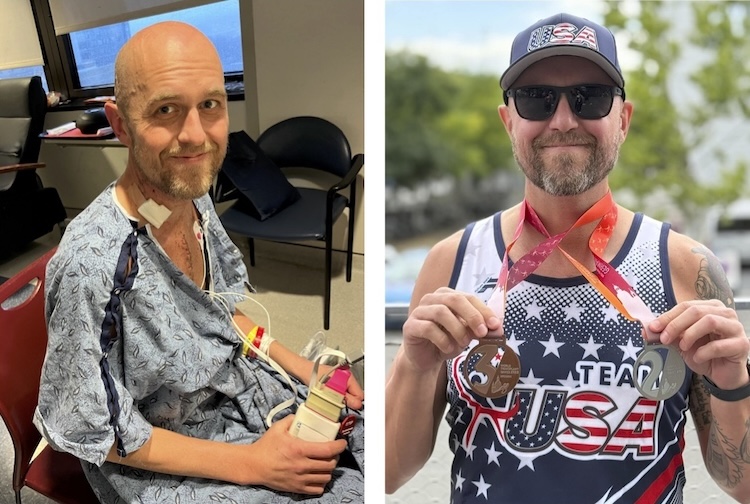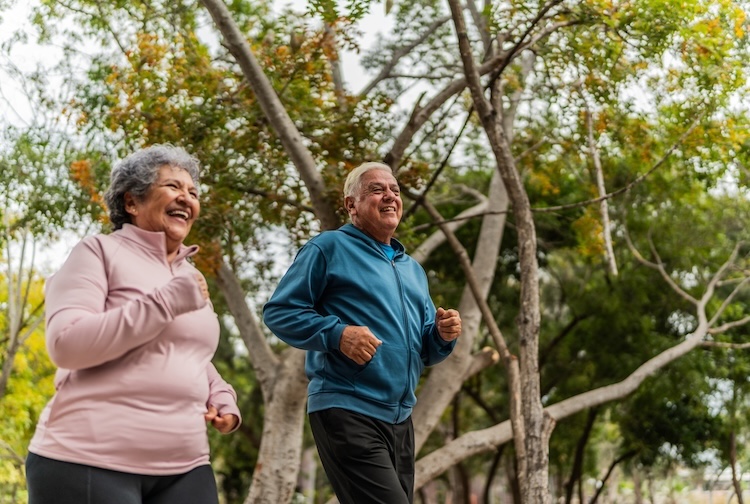Hume-Lee is increasingly a destination transplant center for out-of-state patients
People come from across the country to take advantage of advanced techniques, innovation and outcomes
April 11, 2022 Photo: Getty Images
Photo: Getty Images
By Sean Gorman
A patient recently travelled hundreds of miles to VCU Health Hume-Lee Transplant Center to receive a life-saving liver transplant unavailable elsewhere. The patient's family had been in contact with other transplant centers, but Hume-Lee was the only one to return the call.
In the days following the patient's surgery, Hume-Lee Transplant Program Director Caitlin Winkler stopped by to see how the patient was doing. “The patient's mother looked at me and said, 'You all are my heroes,'” Winkler related. “Her loved one was about to go to hospice and would not be alive today had we not answered that phone call.”
Virginia-based Hume-Lee gaining national recognition
It's an increasingly common story at Hume-Lee — a Central Virginia institution for 65 years that's become an East Coast destination transplant center. More and more patients are being welcomed from outside the commonwealth.
Patients looking for a second chance hail from Colorado, Arizona, Washington, D.C., New York, New Mexico, North Carolina, Maryland, California, Florida, Illinois and many other states.
“We're a Virginia institution developing a following from far and wide,” said Dr. Marlon Levy, chair of the Division of Transplant Surgery and director of VCU Health Hume-Lee Transplant Center. “That reinforces the fact that the work we're doing has a meaningful impact — not just in Virginia, but around the country.”
At the heart of Hume-Lee's appeal is the center's combination of compassionate care, cutting-edge medicine and top-tier outcomes.
Hume-Lee performs procedures many other transplant teams just won't do. Shorter wait times and impressive transplant survival rates are also catching the attention of transplant candidates as well as insurance companies, which refer patients from across the country to Hume-Lee for care they can't get closer to home.
Patients outside Virginia contribute to transplant surge
Out-of-state residents have helped Hume-Lee set records for the number of transplants it performs each year.
Hume-Lee transplanted 494 organs in 2021, the highest number the center has ever performed in one year. It surpassed the previous record-setting year, one year prior, when the center performed 459 transplants despite the COVID-19 pandemic.
“We will fight to get you on the waiting list,” Winkler said. “We are going to do everything we can to get you a transplant.”
Kidney transplants, the most common procedure, typically draw patients from local communities. But more kidney patients are now coming to Hume-Lee from neighboring states, Levy said.
“The kidney transplants tend to be the ones that are most clustered in Virginia, and the heart and liver transplants are typically from a little further away,” he said. “But even the kidney procedures have gotten so that the circle has expanded, and we're now getting recipients from North Carolina and Maryland, from Northern Virginia. It's not just a Central Virginia thing.”
Some liver transplant candidates travel to Hume-Lee because the center will transplant people with alcoholic hepatitis. That's a disqualifier for many centers, which require at least six months' sobriety to qualify.
But Hume-Lee takes a different approach. The center addresses the immediate need for transplant while making sure patients get the addiction services and support they need to address the root cause of their liver damage.
“We get patients in the door who had been drinking recently and are in full-blown liver failure. If we do nothing, they're going to die,” Winkler says. “Their alcoholism is a disease that hasn't been treated.”
Innovative practices decrease organ wastage, providing more organs for transplant
Hume-Lee's reputation has spread through social media and word of mouth. That's helping drawing patients from across the country who benefit from Hume-Lee's innovative, high-tech practices.
One such practice is Hume-Lee's use of kidneys from deceased donors who have hepatitis C. That approach has increased the donor pool at a time when more than 100,000 people are on the national wait list for a kidney.
Hume-Lee has used kidneys from hepatitis C-positive donors for years. Those organs transform the lives of people who otherwise face high mortality rates while waiting on dialysis. By treating kidney patients before their transplant to prevent hepatitis C transmission, recipients have just a 3% chance of contracting the disease. Even if that were to occur, the team would treat the disease anyway.
“That has really helped drive down our waiting times,” Winkler said. “People started saying, 'I can drive to Richmond and can get a kidney sooner. That's worth it to me.'”
Hume-Lee's pancreatic islet cell program is also drawing people from across the U.S. While most patients are suffering from chronic pancreatitis and are considered for total pancreatectomy and islet cell auto-transplant (TPIAT), research is also underway at Hume-Lee in allogenic islet cell transplants.
This experimental procedure offers type 1 diabetes patients an alternative to whole organ transplantation, which may be too risky. Transplanting islet cells, instead of the entire pancreas, is less costly and less invasive.
Islet cell transplants account for a relatively small number of Hume-Lee's annual surgeries, but it brings patients from far and wide because Hume-Lee is one of the few U.S. facilities that does it.
Digital age makes news of Hume-Lee patient success spread quickly
With so many people on smartphones and laptops, publicly available transplant data is easy to find. This includes Hume-Lee's impressive survival rates and transplant outcomes — another reason why people travel to Hume-Lee from across the country.
Hume-Lee wants to continue innovating and pushing the boundaries of modern medicine, bringing second chances to patients from across the U.S.
“We look for ways to say 'yes,'” Winkler stated. “We want to be the place you can come to when you don't have any hope left. We want to be the place that gives you that hope."
Sign Up for Transplant E-Newsletter




